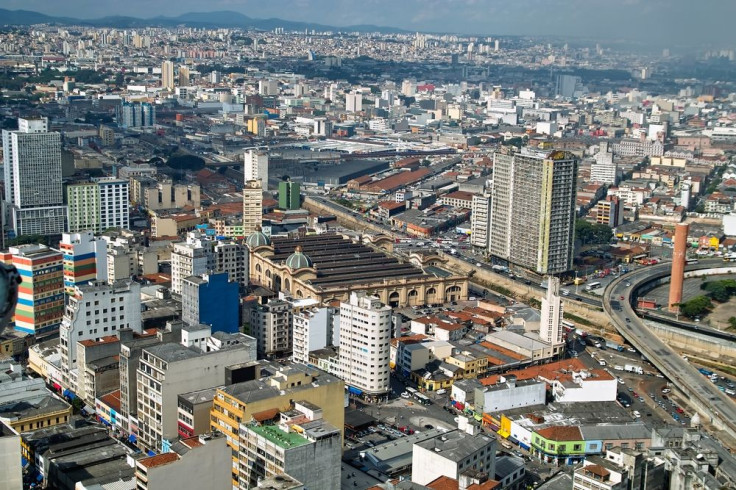São Paulo's Reservoirs Are Running Out Of Water

A prolonged drought in Brazil is emptying some of the reservoirs that churn hydropower generators and send electricity into major cities, prompting some industries and consumers to reduce power consumption.
By the end of this week, the main set of reservoirs that supply electricity to about 9 million people in the huge metropolitan area of São Paulo will exhaust their useful volume and be running on reserves, according to the state’s water and sewage management company Sabesp and the newspaper Diario de Pernambuco.
The Brazilian state, which hosted several World Cup games earlier this month, is facing its worst water crisis in 80 years. Reservoirs that flow into hydroelectric generators provide Brazil’s power grid with more than two-thirds of its supply, according to U.S. government data.
Sabesp, Brazil’s largest water utility, limited the amount of water it supplied to cities in São Paulo in March when its reservoirs fell to their lowest levels ever.
At the end of May, Sabesp’s reservoirs in São Paulo state had drained all but 6.3 percent of their volume, and by Thursday, were running on only 0.06 percent of useful volume. Including reserves, the system generated power at 18.7 percent of total water volume Thursday. If the reservoirs continue depleting at that rate, they would run dry by November if rains do not return in September as meteorologists forecast, Reuters reported.
The state government has avoided power rationing by offering consumers a discount of 30 percent if they reduce consumption by at least 20 percent.
São Paulo resident Martha Slivak Lu is worried that the World Cup has distracted people from focusing on the water shortage.
“The tourists are not being advised to save water,” she wrote for CNN’s iReport service.
Meanwhile, in the neighboring state of Rio de Janeiro, rainfall has picked up again.
“This does not mean that we are on very safe grounds,” José Rosenblatt, director at PSR, an energy consultancy based in Rio, said Thursday, adding that some industries are canceling operations to save power.
“I would not say we are comfortable with the situation, but we are much better off than we were two or three months ago," he said.
Rosenblatt estimated in June that there is a 46 percent chance that Brazil's reservoirs will fall to a critical level, below 10 percent capacity including reserves, by the end of November or a little earlier.
© Copyright IBTimes 2024. All rights reserved.





















